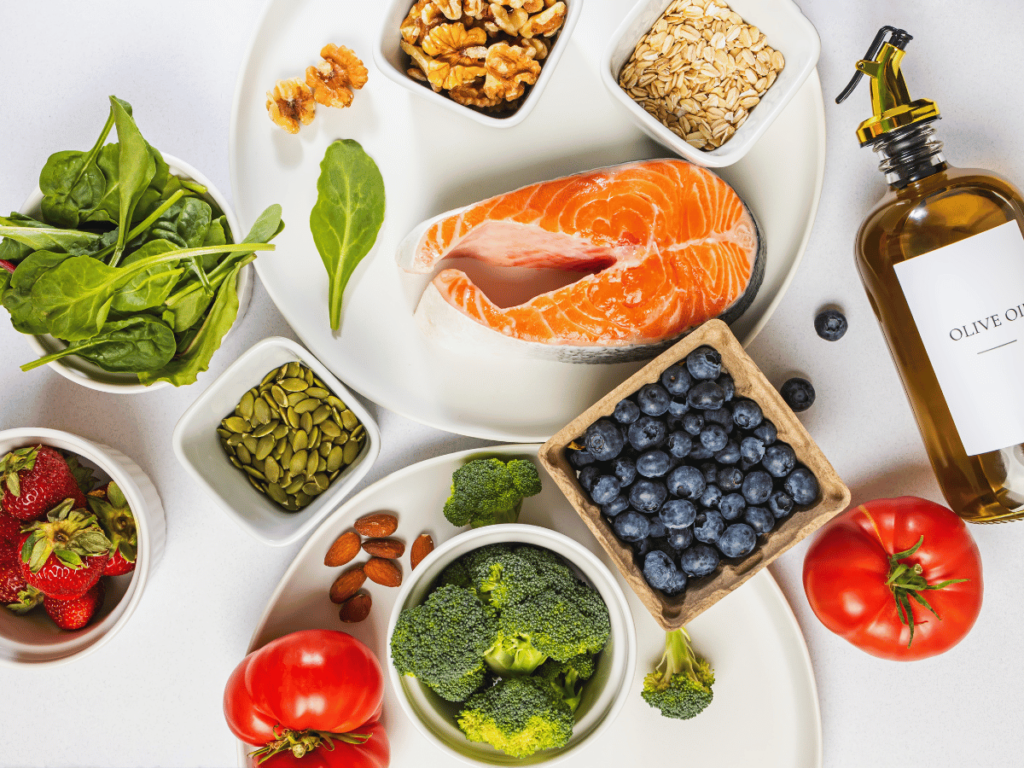Nutrition is the cornerstone of a healthy life. While we are surrounded by advice about what to eat and what to avoid, confusion remains widespread. Between fad diets, social media myths, and marketing gimmicks, many people struggle to understand the real basics of nutrition. So, what does your body actually need? And how can you distinguish facts from myths? This article will take you back to the basics of nutrition, provide essential tips, and bust some of the most common misconceptions about healthy eating.
What is Nutrition and Why Does it Matter?
At its core, nutrition refers to the process of providing or obtaining the food necessary for health and growth. Our bodies rely on macronutrients (carbohydrates, proteins, and fats) and micronutrients (vitamins and minerals) to function optimally.
When you eat a nutritious diet, you provide fuel for your brain, muscles, and organs. Proper nutrition supports physical health by boosting immunity, strengthening bones, and enhancing energy levels. On the mental side, nutrition plays a vital role in mood regulation, focus, and cognitive function. Without the right balance of nutrients, the body starts to experience fatigue, weakened immunity, and potential chronic health issues.
The Importance of Macronutrients

Carbohydrates: Myths and Truths
Carbs are often unfairly demonized as the reason behind weight gain. However, carbs are the body’s primary energy source. The key is to focus on healthy carbs like whole grains, fruits, and vegetables rather than refined, sugary options like white bread and sweets.
- Myth: Carbs make you fat.
- Truth: Excess calories, not carbs, lead to weight gain.
Proteins: Building Blocks of the Body
Proteins are crucial for muscle repair, hormone production, and overall cellular function. The amount of protein you need depends on your activity level, age, and goals.
- Tip: Lean meats, fish, eggs, beans, and nuts are excellent protein sources.
Fats: Good Fats vs. Bad Fats
Fats are essential for hormone production, brain health, and energy storage.
- Good Fats: Avocados, olive oil, nuts, and Omega-3 fatty acids (found in fish).
- Bad Fats: Trans fats (found in processed foods) and excessive saturated fats.
Remember: Not all fats are created equal, and cutting out fats entirely is a mistake.
The Role of Micronutrients
While macronutrients provide energy, micronutrients are the unsung heroes that keep your body running smoothly. These include vitamins like A, C, D, and E, along with minerals like iron, calcium, and potassium.
- Common Myth: Supplements are always necessary.
- Truth: A balanced diet of fruits, vegetables, and whole foods can meet most micronutrient needs.
To maximize your nutrient intake, focus on eating a variety of colorful foods. Leafy greens, berries, nuts, and dairy products are all excellent sources of key vitamins and minerals.
Hydration: The Overlooked Nutrition Tip
Water often takes a backseat in nutrition discussions, but it is vital for every bodily function, from temperature regulation to digestion.
Hydration Myths
- Myth: You must drink 8 glasses of water a day.
- Truth: Water needs vary depending on activity level, weather, and diet. Listen to your body’s thirst cues.
Signs of Dehydration
- Dry skin
- Dark urine
- Fatigue
- Dizziness
Tip: Skip sugary sports drinks unless you’re engaging in intense physical activity. Water and electrolyte-rich foods like fruits are often sufficient.
Common Nutrition Myths Debunked
Myth 1: Carbs Are Bad for You
Carbs are essential for energy. Focus on whole carbs like oats, quinoa, and brown rice.
Myth 2: Fat-Free Foods Are Healthier
Fat-free products are often loaded with sugar and artificial additives to improve flavor.
Myth 3: You Need to Detox Regularly
Your liver and kidneys naturally detox your body. “Detox” teas and cleanses are often marketing scams.
Myth 4: All Calories Are Created Equal
100 calories of chips do not provide the same nutrition as 100 calories of vegetables. Nutrient quality matters.
Myth 5: Supplements Can Replace Food
Whole foods provide fiber, antioxidants, and nutrients that supplements alone can’t replicate.
Building a Balanced Plate: Tips for Healthy Eating
Eating healthy doesn’t need to be complicated. Follow these tips:
- Fill half your plate with vegetables and fruits.
- Quarter of the plate with proteins.
- Quarter of the plate with whole grains like quinoa or brown rice.
- Add healthy fats like avocado or olive oil sparingly.
A balanced plate ensures you get the nutrients you need in the right proportions.
The Importance of Fiber in Your Diet
Fiber is one of the most overlooked nutrients, but it plays a critical role in overall health. It’s essential for good digestion, maintaining a healthy weight, and even preventing chronic diseases like heart disease and diabetes. Yet, many people fall short of their daily fiber requirements.
Benefits of Fiber
- Improves Digestion: Fiber adds bulk to your stool, which helps prevent constipation and promotes regular bowel movements.
- Manages Weight: High-fiber foods are filling, which can reduce hunger and help you eat fewer calories overall.
- Lowers Cholesterol: Soluble fiber, found in foods like oats and beans, binds to cholesterol in the digestive tract and helps lower LDL (bad) cholesterol levels.
- Stabilizes Blood Sugar: Fiber slows the absorption of sugar into the bloodstream, preventing spikes in blood glucose.
Soluble vs. Insoluble Fiber
- Soluble Fiber: Dissolves in water and helps reduce cholesterol.
- Examples: Oats, legumes, apples, and carrots.
- Insoluble Fiber: Adds bulk to your stool and promotes bowel health.
- Examples: Whole grains, nuts, and leafy vegetables.
Top Fiber-Rich Foods
- Whole grains (brown rice, quinoa, and oats)
- Fruits (apples, pears, and berries)
- Vegetables (broccoli, carrots, and spinach)
- Legumes (lentils, chickpeas, and beans)
- Nuts and seeds (chia seeds, almonds, and flaxseeds)
The recommended daily intake for fiber is about 25-30 grams for adults. Start incorporating fiber-rich foods slowly to avoid digestive discomfort, and make sure to drink enough water.
Understanding Sugar: Natural vs. Added Sugars

Sugar is everywhere. From soft drinks to sauces, it often sneaks into your diet unnoticed. However, not all sugars are created equal.
Natural Sugars
Natural sugars are found in whole foods like fruits, vegetables, and dairy products. These sugars come with essential nutrients, fiber, and antioxidants, which help your body process them efficiently. For example:
- Fruit contains fructose but also provides vitamins and fiber.
- Milk contains lactose but is also a great source of calcium and protein.
Added Sugars
Added sugars are those introduced during food processing. They offer no nutritional value and can contribute to weight gain, diabetes, and heart disease. Examples include:
- Table sugar (sucrose)
- High-fructose corn syrup
- Sweeteners in sodas, candies, and baked goods
How to Identify Hidden Sugars
Food labels often disguise sugar under different names. Look for these terms:
- Dextrose
- Maltose
- Corn syrup
- Cane sugar
Tips for Reducing Sugar Intake
- Choose whole fruits over fruit juices.
- Check food labels for added sugars.
- Replace sugary snacks with nuts, seeds, or vegetables.
- Opt for water, herbal tea, or sparkling water instead of sugary beverages.
By reducing added sugars, you can improve your energy levels, balance blood sugar, and support better overall health.
Practical Meal Planning for Busy Lives

Eating healthy doesn’t have to be time-consuming or expensive. A little planning can go a long way in ensuring you eat nutritious meals, even on a busy schedule.
Simple Strategies for Meal Prep
- Plan Your Meals Ahead: Take 30 minutes each week to plan meals for the upcoming days.
- Batch Cooking: Prepare larger portions of meals like soups, stews, or grilled chicken to store for the week.
- Use a Grocery List: A well-planned list helps you avoid impulse purchases and ensures you buy healthy foods.
How to Shop Smart
- Stick to the perimeter of the store where fresh produce, meats, and dairy are located.
- Avoid the processed food aisles as much as possible.
- Opt for frozen fruits and vegetables—they’re affordable and just as nutritious as fresh options.
Quick and Nutritious Meal Ideas
- Breakfast: Overnight oats with berries and nuts.
- Lunch: Grilled chicken salad with quinoa and a variety of veggies.
- Dinner: Baked salmon with roasted sweet potatoes and steamed broccoli.
- Snacks: Greek yogurt, nuts, or sliced veggies with hummus.
By planning ahead, you can save time, reduce stress, and stick to your healthy eating goals.
Nutrition for Weight Management

Many people associate weight loss with restrictive diets, but sustainable weight management is all about balance, not deprivation.
Why Fad Diets Don’t Work
Fad diets promise quick weight loss but often fail in the long term because:
- They are too restrictive, making them unsustainable.
- They don’t address lifestyle habits or provide proper nutrition.
- They often lead to “yo-yo dieting,” where you regain the weight after stopping the diet.
Sustainable Eating Habits
- Focus on portion control rather than cutting out entire food groups.
- Eat more whole foods like vegetables, lean proteins, and whole grains.
- Incorporate regular physical activity, like walking, cycling, or swimming.
The Role of Exercise
While diet is critical for weight management, physical activity helps burn calories, build muscle, and improve overall well-being. Combining healthy eating with exercise creates a balanced approach to weight management.
Remember: Small, consistent changes are far more effective than extreme measures.
Debunking “Superfoods” Hype
The term “superfood” is a marketing buzzword often used to describe nutrient-dense foods. While foods like kale, blueberries, and chia seeds are healthy, they are not magical.
What Are Superfoods?
Superfoods are rich in vitamins, antioxidants, and other nutrients. Examples include:
- Kale
- Avocados
- Salmon
- Berries
The Reality of Superfoods
While these foods are beneficial, you don’t need to break the bank to eat healthily. Many affordable alternatives offer similar nutritional value:
- Spinach instead of kale
- Carrots instead of goji berries
- Canned salmon instead of fresh salmon
Focus on variety and balance instead of obsessing over specific “superfoods.” All whole foods have something valuable to offer.
Reading Food Labels: What You Need to Know
Understanding nutrition labels can empower you to make healthier choices.
How to Decode Labels
- Serving Size: Pay attention to portion sizes listed.
- Calories: Know how many calories you’re consuming per serving.
- Nutrients: Prioritize fiber, protein, and healthy fats. Limit sodium, sugar, and trans fats.
Red Flags to Watch For
- Hidden Sugars: Words like sucrose, fructose, and corn syrup.
- High Sodium: Over 20% DV (Daily Value) of sodium per serving is too much.
- Trans Fats: Avoid anything that mentions “partially hydrogenated oils.”
By reading food labels carefully, you can avoid hidden unhealthy ingredients and make better choices.
The Importance of a Holistic Approach to Nutrition
Good nutrition isn’t just about the food on your plate. To achieve long-term health and well-being, it’s essential to take a holistic approach, which includes lifestyle factors such as sleep, stress management, and physical activity.
How Mindset Affects Healthy Eating
Your mindset plays a significant role in your eating habits. If you view healthy eating as a punishment or short-term fix, it’s unlikely to become a sustainable habit. Instead:
- Focus on the positive effects of healthy eating, like increased energy and improved mood.
- Avoid an “all-or-nothing” mentality—small changes matter and build up over time.
- Practice mindful eating: Slow down, chew your food, and listen to your body’s hunger signals.
The Role of Sleep and Stress Management
Lack of sleep and chronic stress can derail even the best nutrition plans:
- Sleep: Poor sleep disrupts hormones that regulate hunger (ghrelin and leptin), causing cravings for high-calorie, sugary foods. Aim for 7–9 hours of quality sleep each night.
- Stress: High stress levels increase cortisol, a hormone that can lead to emotional eating or overeating. Practice stress-reducing techniques like meditation, deep breathing, or regular exercise.
Physical Activity and Nutrition
Exercise and good nutrition go hand-in-hand. Regular physical activity helps:
- Burn excess calories.
- Boost metabolism and muscle strength.
- Improve mental health by releasing endorphins.
By approaching health holistically—combining proper nutrition, sleep, stress management, and movement—you’ll create a lifestyle that supports long-term success.
Conclusion
Understanding the basics of nutrition and breaking through myths is essential for living a healthy, balanced life. Nutrition isn’t about drastic changes or chasing fad diets. Instead, it’s about focusing on the fundamentals—getting the right balance of macronutrients, consuming essential vitamins and minerals, staying hydrated, and listening to your body.
We’ve busted common myths like the “carbs are bad” narrative, shown the importance of fiber and hydration, and provided practical meal-planning tips to make healthy eating easier. By taking a holistic approach that includes sleep, stress management, and exercise, you can develop habits that truly nourish your body and mind.
Remember, good nutrition isn’t about perfection. It’s about making small, sustainable changes that add up over time. Start with one healthy habit today—your future self will thank you!
FAQs
1. What is the most important nutrient for the body?
While all nutrients are essential, water is the most critical. Without water, the body cannot function. After that, macronutrients like proteins, carbs, and fats provide the energy and building blocks needed for survival.
2. Can I lose weight without giving up carbs?
Yes! Carbs are not the enemy. The key is choosing healthy carbs like whole grains, fruits, and vegetables while avoiding refined and sugary options. Balance is the secret to effective weight loss.
3. Are supplements necessary for everyone?
Not necessarily. Most people can meet their nutrient needs through a balanced diet. Supplements may be helpful for those with deficiencies, medical conditions, or dietary restrictions, but consult a healthcare professional before starting any.
4. How much protein do I need daily?
The average adult needs about 0.8 grams of protein per kilogram of body weight. Athletes or those with active lifestyles may need more—up to 1.2–2 grams per kilogram. Sources like lean meats, fish, eggs, beans, and dairy provide excellent protein.
5. Is it bad to eat fats if I want to lose weight?
No! Healthy fats like avocados, nuts, and olive oil are essential for your body and can help you feel full longer. Avoid trans fats and limit saturated fats, but don’t cut out fats entirely—they’re crucial for hormone regulation and brain health.
Stay Informed and Healthy
Want more tips and updates on living your healthiest life? Subscribe to our newsletter and join our community!

